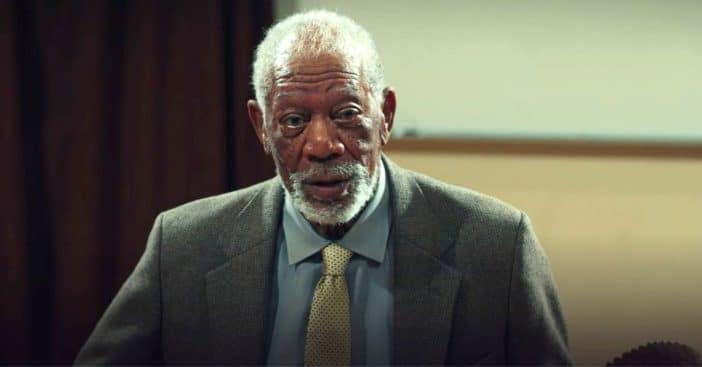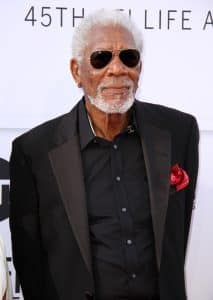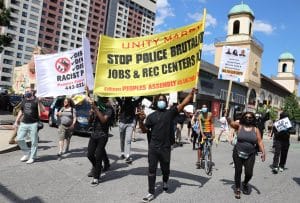
With a career spanning over five decades, 85-year-old Morgan Freeman has made cinematic history while also witnessing national and world history. Speaking of the history and experiences of Black Americans, Freeman actually greatly disapproves of Black History Month and of using the term “African American.” Why?
As far back as 2005, Freeman has been an open critic of Black History Month. He firmly asserts that “Black history is American history,” and so does not think it needs delegation to a month – and never mind limiting it to one single month it gets acknowledged. He is also a vocal advocate against institutionalized racism, especially “the terrorism we suffer from the police.” His criticisms against the term “African American” stem from this advocacy and knowledge of Black Americans’ history in the country since its time as 13 colonies.
Morgan Freeman explains his dislike for Black History Month and the term “African American”

Currently, Freeman is promoting his new film A Good Person, written, directed, and produced by Zach Braff. Along the way, Freeman sat down for an interview for The Sunday Times. During the chat, Freeman explained why he finds Black History Month offensive. “Black History Month is an insult,” he said. “You’re going to relegate my history to a month?”
In a similar vein, Freeman wants to do away completely with the term African American. “Also, ‘African American’ is an insult,” Freeman added. “I don’t subscribe to that title. Black people have had different titles all the way back to the n-word and I do not know how these things get such a grip, but everyone uses ‘African American’. What does it really mean? Most Black people in this part of the world are mongrels.”
He went on, “And you say Africa as if it’s a country when it’s a continent, like Europe.” For example, Andrew Garfield is not called a European-American actor; the moniker gets specific and refers to him specifically as Enlighs-American.
Morgan Freeman’s history of advocacy

The month of February is designated as Black History Month, a time of reflection, celebration, and empowerment, acknowledging the role of Black Americans in forging the country into what it is today. In an interview for 60 Minutes, Freeman told host Mike Wallace his views on how to address racism – and it didn’t involve Black History Month. He noted that there is no “white history month” and, when asked by Wallace how to eliminate racism without that month, Freeman said “Stop talking about it. I’m going to stop calling you a white man, and I’m going to ask you to stop calling me a black man.”
RELATED: Morgan Freeman Admits To Using A Coach For His Famous Voice
On the opposite side of this argument, however, is the historical, chronicled, ongoing, and proven different treatment Black American faced and still face. Freeman has acknowledged exactly this during protests against police brutality against Black Americans. He “absolutely” supported the 2015 Baltimore protesters denouncing the death of Freddie Gray.

“That unrest [in Baltimore] has nothing to do with terrorism at all, except the terrorism we suffer from the police,” said Freeman. “That unrest [in Baltimore] has nothing to do with terrorism at all, except the terrorism we suffer from the police. … Because of the technology—everybody has a smartphone—now in reaction to the death of Freddie Gray we can see what the police are doing. We can show the world, ‘Look, this is what happened in that situation.’ So why are so many people dying in police custody? And why are they all Black? And why are all the police killing them white? What is that? The police have always said, ‘I feared for my safety.’ Well, now we know. OK. You feared for your safety while a guy was running away from you, right?”
But other public figures such as Oprah Winfrey assert that Black History Month must remain because the role of that demographic is not taught to the fullest extent in American classrooms, along with the role of racism when shaping legislature, housing, economics, and more – vital contributions also risk getting brushed under the rug. A designated month such as Black History Month shines a spotlight on it all that cannot be ignored or omitted from a curriculum. As Freeman sees it, Black history should be an irrevocable part of education that doesn’t need to be limited to one month. But in practice it can get overlooked and this safeguards from that.

